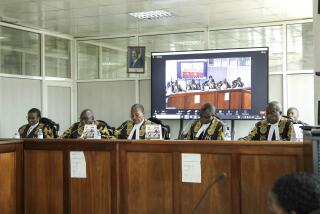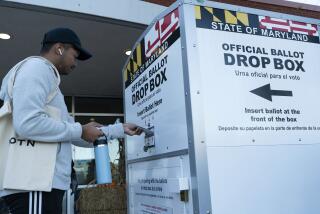Is Defense of Marriage Act ruling too favorable?
Last week the U.S. 2nd Circuit Court of Appeals in New York became the second federal appeals court to rule that Congress violated the Constitution when it limited the definition of “marriage” in federal law to the union of a man and a woman. The decision, which invalidates part of the Defense of Marriage Act, is a heartening one that should be affirmed by the Supreme Court. But some advocates of marriage equality worry that the decision, in a sense, might be too favorable. What concerns them, from a pragmatic perspective, is a finding by the appeals court that gays and lesbians constitute a “suspect class” — a politically marginalized group, like racial minorities, women and some others, that requires special protection under the law.
Under long-standing Supreme Court precedent, laws that disadvantage those groups must be subjected to “heightened scrutiny” by the courts in determining whether they violate equal protection of the laws. In the DOMA case the 2nd Circuit concluded not only that gays have been subjected to discrimination — including, in the past, the criminalization of homosexual conduct — but also that they lack the political power necessary to protect themselves from “discrimination at the hands of the majoritarian political process.” That seems self-evident to us. But court decisions striking down laws that disadvantage gays have steered clear of declaring them a suspect class. If that becomes the issue in the Supreme Court, some same-sex marriage activists fear, they might lose the support of Justice Anthony Kennedy, who has written two landmark opinions striking down anti-gay laws but who might balk at declaring gays and lesbians a protected class that lacks access to political power.
Changes in public attitudes about homosexuality are beginning to be reflected in the political process. For example, gay rights activists are optimistic about the outcome of four marriage referendums on Nov. 6 ballots. Still, prejudice persists and the Supreme Court must accord to gays and lesbians the same solicitude it extends to other groups that have retained a special status in the law even as they have increased their participation in politics. We hope that, if this case comes to the court, Kennedy and his colleagues will agree and say no to DOMA.
More to Read
Start your day right
Sign up for Essential California for news, features and recommendations from the L.A. Times and beyond in your inbox six days a week.
You may occasionally receive promotional content from the Los Angeles Times.






